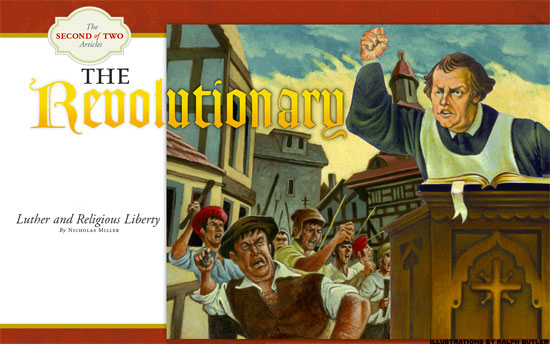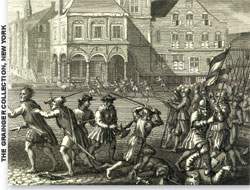The Revolutionary
Nicholas P. Miller July/August 2007
Getting your Trinity Audio player ready...

On the contrary, Luther is more fairly accused of elevating the status of the prince at the expense of the church as well as the individual, at least in civil matters. His 1520 Address subordinates the church in civil matters. His 1523 discourse on the Secular Authority made clear that the civil sword was firmly in the hands of the civil magistrate, who was not to be actively opposed, even when overreaching and tyrannical. Even in religious matters, which he acknowledged were outside the civil ruler's legitimate oversight, he taught that spiritual "outrage is not to be resisted, but endured."2 Duly constituted civil rulers were not to resist their unjust and ungodly superiors.3 All this was written more than a year prior to the events directly leading to the Peasants' War. These events began unfolding in the summer of 1524 in southwest Germany.4

A month later, after the peasants had engaged in greater bloodshed, he wrote a tract whose title betrayed its target and its polemical tone—Against the Robbing and Murdering Hordes of Peasants. In this pamphlet, he criticized the religious aspirations and leadership of the peasants, particularly fingering Thomas M
Article Author: Nicholas P. Miller
Nicholas Miller, Ph.D., is an attorney and associate professor of church history at Andrews University, Berrien Springs, Michigan. He is the author of the The Religious Roots of the First Amendment (New York: Oxford University Press, 2012), which more fully develops the theme of this article.